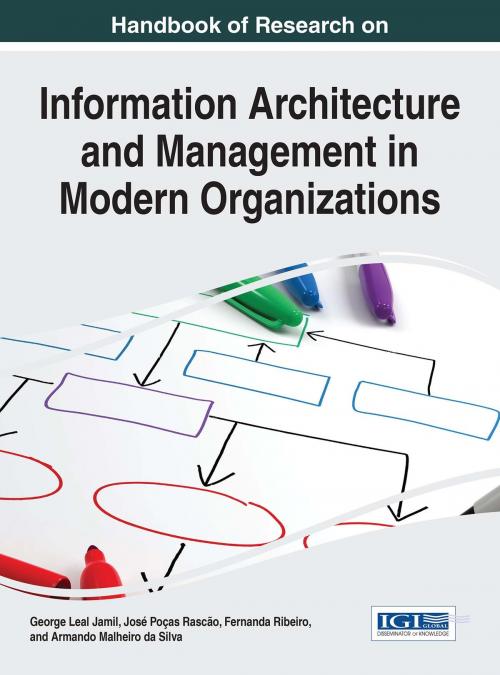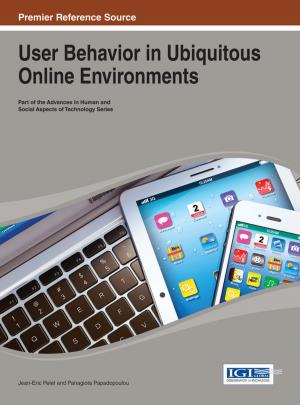Handbook of Research on Information Architecture and Management in Modern Organizations
Business & Finance, Industries & Professions, Information Management, Economics| Author: | ISBN: | 9781466686397 | |
| Publisher: | IGI Global | Publication: | August 17, 2015 |
| Imprint: | Information Science Reference | Language: | English |
| Author: | |
| ISBN: | 9781466686397 |
| Publisher: | IGI Global |
| Publication: | August 17, 2015 |
| Imprint: | Information Science Reference |
| Language: | English |
Information is considered both an essential element of organizational design and an asset to be processed and managed. Further research on and application of topics relating to the architecture, management, and use of information is imperative to organizational success. The Handbook of Research on Information Architecture and Management in Modern Organizations focuses on information as an essential element of organizational design and emphasizes the strategic role of knowledge transfer and management in organizations across industries. Taking a cross-disciplinary approach to information architecture and management, this publication draws on research essential to diverse organizations and is designed for use by business professionals, researchers, academicians, and upper-level students. This comprehensive reference work features key research and concepts on topics related to information functionality, information modeling, information overload, information retrieval, innovation management, organizational architecture, informed governance, and relevant applications across industries.
Information is considered both an essential element of organizational design and an asset to be processed and managed. Further research on and application of topics relating to the architecture, management, and use of information is imperative to organizational success. The Handbook of Research on Information Architecture and Management in Modern Organizations focuses on information as an essential element of organizational design and emphasizes the strategic role of knowledge transfer and management in organizations across industries. Taking a cross-disciplinary approach to information architecture and management, this publication draws on research essential to diverse organizations and is designed for use by business professionals, researchers, academicians, and upper-level students. This comprehensive reference work features key research and concepts on topics related to information functionality, information modeling, information overload, information retrieval, innovation management, organizational architecture, informed governance, and relevant applications across industries.















